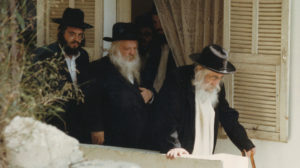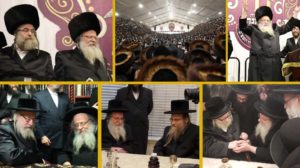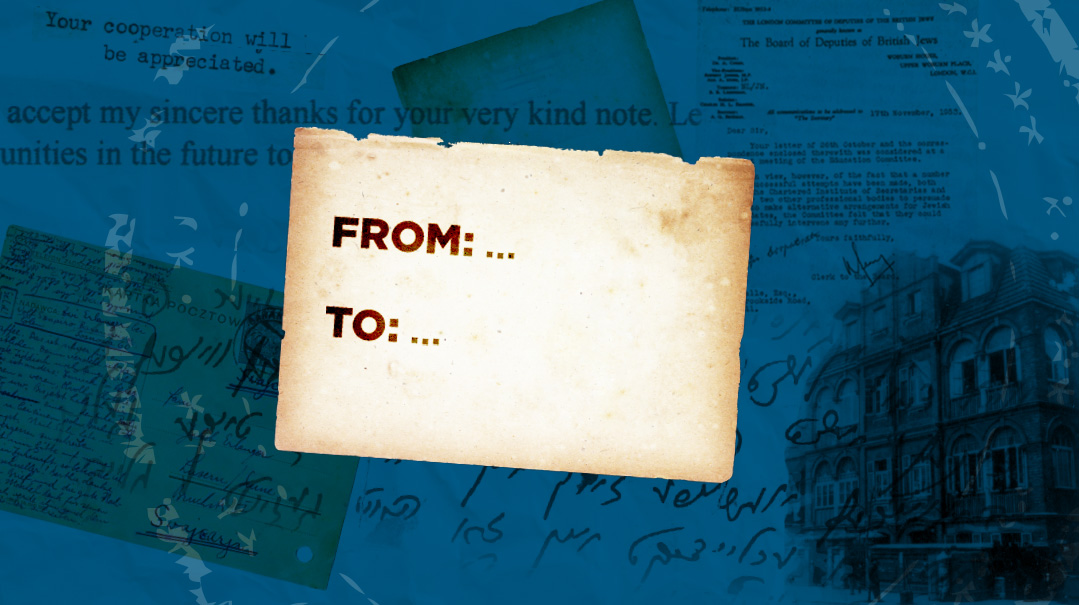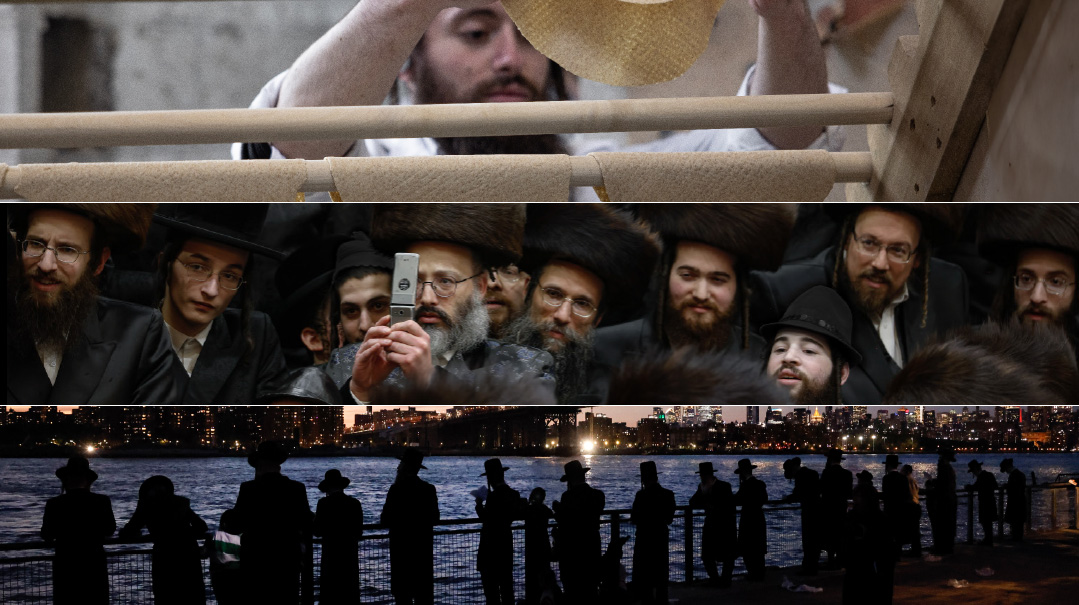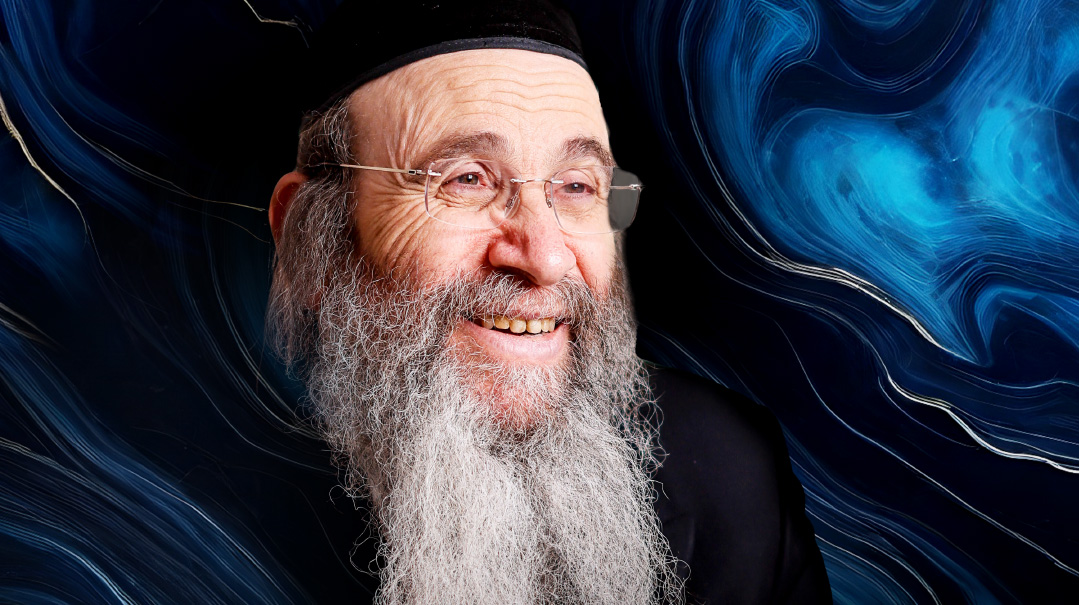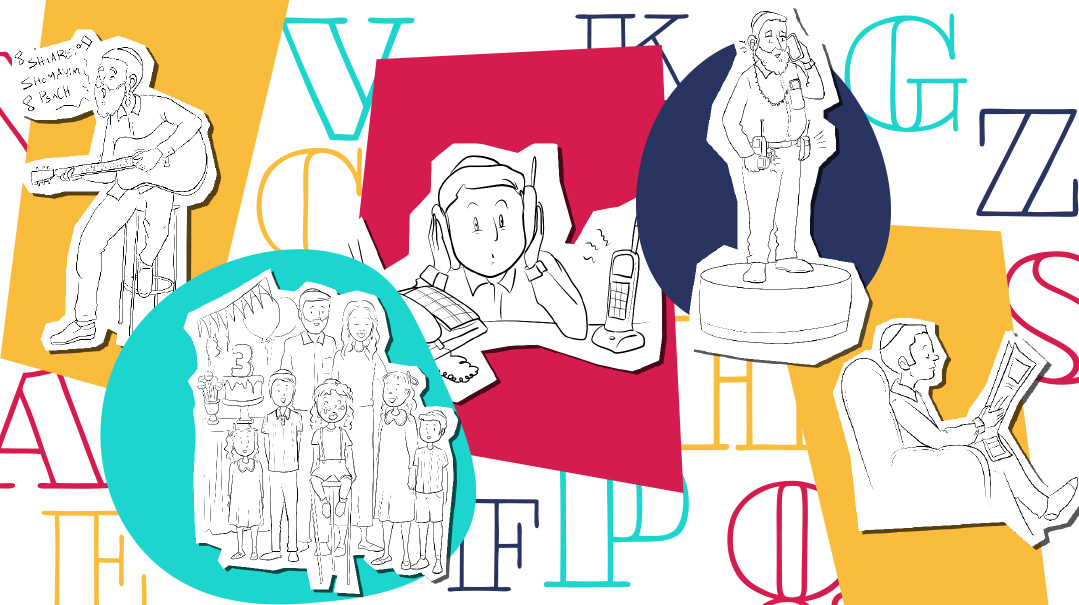Out from the Cold
| April 7, 2021Rav Shammai Zahn nurtured a generation of Sephardi gedolim whose influence was felt all over Europe and beyond. A reunion of memories after six decades
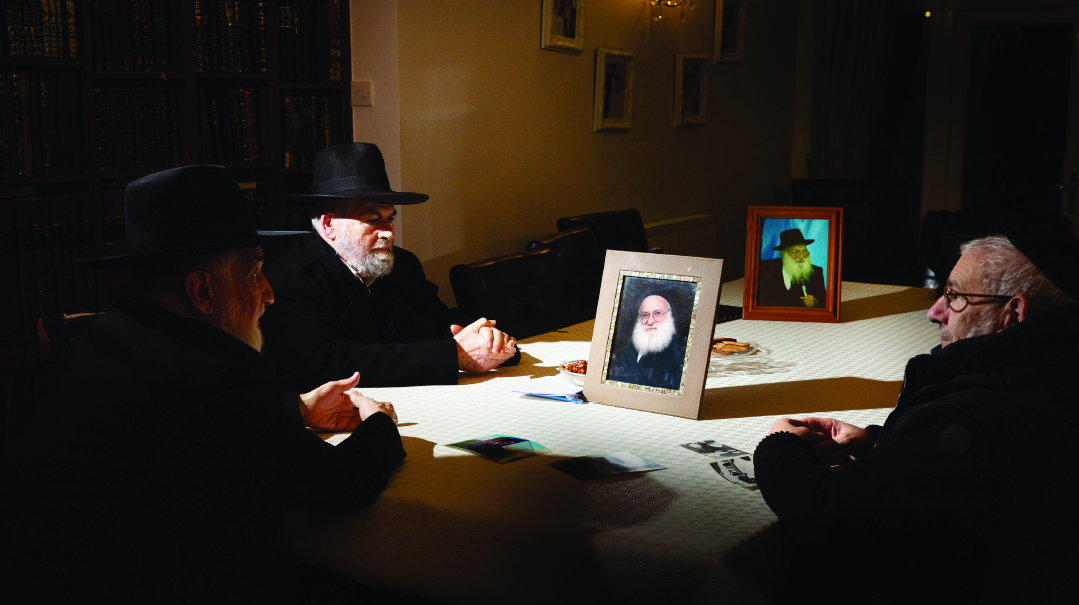
“I owe my life to him.”
Talmidim remember Rav Shammai Zahn ztz”l
- Mr. Shmuel Bitan, originally of Melilla
- Mr David Fhima, originally of Marrakesh
- Rabbi Avraham Melul, originally of Tangiers
They were a group of several dozen Moroccan teenagers on an open lorry, traveling down an English highway, singing aloud in the August sunshine. Arriving in the beautiful Lake District National Park, they’d find a scenic but sheltered spot and set up their tents for camp. Leading the group was a middle-aged, European-born rosh yeshivah, with a long beard, big smile, and overflowing heart. Of course, he would help his boys pitch the tents. He had bought them the army surplus tents and sleeping bags. He would take care of their summer fun, the same way he took care of their learning, their davening, their growth, their occasional homesickness, their clothing, their Yom Tov invitations, and even their pocket money.
When we meet a small group of these Moroccan alumni of Sunderland Yeshivah, 60 years later there is still an outpouring of gratitude and closeness to their rebbi and mentor, Rav Shammai Zahn ztz”l, who passed away in 2001.
“I tell my grandchildren, I owe my life to him.”
“I can never, ever, have enough hakarat hatov.”
“He was more than a father to us.”
“You could not find a better person to follow,” say these grandfathers whom Rav Shammai Zahn taught and nurtured in his yeshivah, so many decades ago.
From 1952 to 1967 and beyond, in the quiet, chilly British town of Sunderland, far from the Mediterranean sunshine, far from their parents in Tangiers, Fez, Casablanca, or Marrakesh, boys who had barely studied Gemara before blossomed into serious yeshivah bochurim and often brilliant talmidei chachamim. Some notable personages include Rav Nissim Rebibo ztz”l, who became rosh beis din of Marseille, then of Paris, then of the entire France; Rabbi Shimon Biton ztz”l, who served as the venerated av beis din of Marseille, his fascinating life recorded in the ArtScroll biography of his wife Rabbanit Shulamit Biton-Blau, From Djerba to Jerusalem; Dayan Saadia Amor ztz”l, rosh beth din of the Sephardi Beth Din of the UK and mechutan of Rav Mordechai Eliyahu; Rav Avraham Baddouch ztz”l, a rosh kollel in Mexico; Rav Refael Yisrael ztz”l; and yibadel lechayim tovim, Rav Gavriel Ittah of Strasbourg, among others. There’s also Kabbalist Rabbi David Pinto who has set up Torah institutions around the world, and Rav Shalom Gabbai, who went back to lead the community in Marrakesh. Dozens of others became shochtim and menakrim trusted by stringent kashrus authorities, and sincere, learned laymen.
The bochurim in the yeshivah became a close-knit group, almost like a family. They were taught by Rav Shammai Zahn and the beloved maggidei shiur Rav Chaim Shmuel Lopian (son of Rav Elya ztz”l) and Rav Vovshi Kaufman, who later became rosh kollel of Manchester’s Kollel Harabbanim. Among themselves, they used their own languages, Spanish or French, Hebrew, a little Arabic, while Hebrew was used to communicate with the staff members. Rav Yisrael Melul, today a retired rabbi in Edgware, UK, was one of the very early arrivals from Morocco to Sunderland, and by the late 1950s he was already giving a shiur to the beginners. All had learned Chumash at home, some Mishnah, but very few had learned Gemara. Yet the boys recall having a tremendous desire to learn.
“It was hard, but it didn’t take us long to catch on to Gemara, because we had a lot of cheishek, we spoke Hebrew, and we had that special warm atmosphere,” says Rabbi Avraham Melul, the host of our meeting. The atmosphere in Sunderland Yeshiva was serious. Any boy who came to a yeshivah so far away had come to learn, not to goof off. The alumni share fond memories of young Nissim Rebibo, a Morrocan illui, standing at the back of the beis medrash, learning for hours upon hours, and of his afternoon chavrusah with Rav Vovshi Kaufman. The sincere desire to learn coupled with the language barrier meant there was little outside the yeshivah to attract these diligent talmidim.
Plucked from the Fires
Rav Shammai Zahn was born in Nuremberg, Germany, to Galician parents. As the Nazis squeezed the liberty, livelihood, and then life itself out of the city’s Jews, his younger brother and sister obtained places on a Kindertransport that brought them to safety in England. But Shammai, a very bright and diligent bochur of 18, was too old to qualify.
His escape at almost the last possible moment came about through a good friend, Naftali Neuberger, who obtained a visa for Shammai to join him at Yeshivas Ner Israel in Baltimore. In 1939, the bochur was allowed to leave the Nazi trap for England, where he would wait until his number came up for entry to the United States. With no escape route, his parents and two younger sisters were murdered al kiddush Hashem.
Young Shammai learned in Rav Moshe Schneider’s yeshivah in London while waiting to get to Ner Israel, but by 1941, German U-boats that sunk the Allied ships as they crossed the Atlantic made his plan unrealistic and unsafe, and he realized he would be staying in England. A highlight of his week were the profound shiurim of Rav Eliyahu Eliezer Dessler ztz”l, who was based in Gateshead, but traveled throughout England to teach. At some point, Shammai decided to follow this towering baal mussar and educator up to the chilly, windswept northeast of England, where the Gateshead Yeshivah and Kollel were steadily becoming a Torah force to be reckoned with. Rav Shammai was a gifted, brilliant learner, and was accepted into the Gateshead Kollel, although he was still unmarried.
Interestingly, Rav Shammai’s son points out, the caption under the Ner Israel class picture in the ArtScroll biography of Rav Moshe Sherer lists Shammai Zahn as “absent.” He was on the Yeshivah’s books, but his destiny lay elsewhere and he never made it across the ocean.
In 1945, Mr. Avrohom Dov Kohn, principal of the Gateshead Seminary, suggested a shidduch for Shammai. Soroh (Lotte) Bergman had arrived in Manchester from Germany together with her parents, also in 1939. She had been deeply impressed by the derashos of Rav Dessler when he spoke in Manchester, and dreamed of the Torah lifestyle he spoke of. The couple got married on Lag B’omer of 1945.
The Sunderland Yeshiva — Yeshivas She’eris Hapleitah Netzach Yisrael — that would become the Zahns’ life’s mission and legacy, entered their lives on Chol Hamoed Succos of 1946. Reb Shammai was learning in his usual seat in the kollel when he looked up to see that Rav Dessler himself and Rav Naftoli Shakovitsky ztz”l, the Gateshead Rav, were looking over at him as they conferred in a corner of the room. He soon found out why. Post-war rescue activists had just brought a few dozen bochurim into England from the DP camps and the shattered remains of European cities. Other yeshivahs could not absorb them — after the trauma of surviving the war in Europe, the boys needed something else, a yeshivah geared to their needs that would help rehabilitate them.
The plan was to house the refugees in a hostel building in the nearby town of Sunderland, and two senior Gateshead kollel members had been chosen to lead the new yeshivah. One was Rav Zusha Waltner ztz”l; the second was Rav Aryeh Leib Grossnass ztz”l, who declined the role. (Not long afterward, Rav Grossnass was appointed a dayan on the London Beth Din, where he served with great distinction.) Rav Dessler turned to the newlywed yungerman who was sitting in kollel on Chol Hamoed, and asked, “Would you be able to help out for a few weeks in the new yeshivah?”
Fifty years later, Rav Shammai would quip, “I’m still helping out.”
The Challenge
Sunderland, on the northeast coast of England, just 12 miles from Gateshead, boasted a relatively small but well-established Jewish community with many families of Lithuanian origin, and several successful Jewish businesses. Rav Shammai, whose charm and warm personality made him universally respected and popular, moved into the quiet town to establish his yeshivah.
The first group of bochurim were a mixed group — some from Eastern Europe and some from Western Europe; some who had learned in prewar yeshivos, some from chassidish homes. They were truly “She’eris Hapleitah.”
One day, Rav Shammai was in the kitchen discussing arrangements with the yeshivah cook when she let him know her opinion: “When it comes to the learning, you’re wasting your time. These boys are interested in getting their lives back together, but not in learning.”
Rav Shammai took this as a challenge — and most of the boys stayed with him, learning in Sunderland Yeshiva until 1951, when they disbanded and went on to build families around the world. The most distinguished pair of chavrusas were Rav Zechariah Gelley ztz”l, who arrived in Sunderland straight from Bergen-Belsen and would later become a rosh yeshivah of Sunderland before going on to lead the Washington Heights kehillah, and Rav Chanoch Ehrentrau ybl”t, later av beis din of London Beth Din and a senior leader of European Jewry.
When the European bochurim moved on, the roshei yeshivah looked to find another niche they could fill. Rav Shammai and Rav Zusha had heard of the Zionist efforts to encourage youth aliyah from Morocco, wresting the teenagers from their traditions. Rav Zaidel Semiatitzsky, a son-in-law of Rav Moshe Schneider from Schneider’s yeshivah in London, had already been to Morocco to offer boys the opportunity to learn in yeshivah in London, and the Sunderland roshei yeshivah decided to follow this example.
Rav Shammai and Rav Zusha traveled to Morocco, walking the Jewish streets of Casablanca on Shabbos morning, going from beit knesset to beit knesset and speaking in lashon hakodesh, reaching out to young boys and recruiting them to come to yeshivah. In 1954, they parted ways. Rav Zusha Waltner moved to Morocco, where he founded and led the school and yeshivah in Tangiers for many years, while Rav Shammai continued to bring boys to Sunderland, taking care of them like a father and nurturing their development into yeshivah bochurim. There were other activists too, so that hundreds of Moroccan teenagers were persuaded to join yeshivos over the coming decade.
“Sometimes, my father was asked not to speak to the older groups of boys, since they were already earmarked to enroll in Yeshivas Mir Brooklyn,” says Rav Dovid Zahn, Rav Shammai’s son, rosh yeshivah of Sunderland Yeshiva today. “From the early 1950s until after the Six Day War, when he was told it had become too dangerous, my father went to Morocco every year. He traveled to Gibraltar to fundraise and then on to solicit and recruit in Marrakesh, Casablanca, and Fez.”
The Moroccan Jews greeted the roshei yeshivah with great respect and their trademark hachnasas orchim. When one bochur in Sunderland told the Rosh Yeshivah that his parents wanted him back home to go to work, Rav Shammai advised him to write to them that the Rosh Yeshivah would soon be coming to Morocco and would discuss this with them in person. On his next visit, he made a special detour to this talmid’s village. He knocked on the parents’ door in the evening and they welcomed the visiting rabbi with tremendous warmth, serving him a meal and then showing him to a bedroom. It was only in the morning that Rav Shammai realized that they must have given up their own room and slept on the living room couches. Yet when he brought up the discussion of their son’s future plans, they reacted with complete surprise. They did not know who the guest was or that he was their son’s rosh yeshivah, but had simply treated him with the respect and kindness they showed to any visiting rabbi.
The bochurim came in the dozens, each success story bringing younger brothers and friends. During the 1950s and part of the 1960s, the student body of Sunderland Yeshiva was entirely Moroccan, and even after 1967, the boys continued to arrive. Rav Shammai would become like a father to them, and a grandfather to their children in turn.
Meeting of Brothers
Rabbi Avraham Melul, our host, and Mr. Shmuel Bitan are greeting each other like brothers in a warm flow of Spanish. Rabbi Melul comes from Tangiers, in Northern Morocco. While most of Morocco was a colony of the French Empire, Spain also had a considerable sphere of influence. After Morocco declared independence in 1956, French and Arabic were the main languages of the new state, but Spanish was still heavily used in the North.
“We spoke Spanish at home,” says Rabbi Melul, “although my mother came from Gibraltar and could speak English. I spoke French, too, as well as Hebrew.” Rabbi Melul had heard about Rav Shammai’s yeshivah in Sunderland through Rav Zusha Waltner and Rav Moshe Schloss, who led the yeshivah in Tangiers. In 1959, his parents made aliyah. They did not want to take their teenage son along because they were worried about conscription into the IDF, but could not leave him in Tangiers, because once they had Israeli citizenship they would not be welcome back into Morocco. The family travelled to Gibraltar by boat, then said their farewells and sent 13-year-old Avraham on a ship to England by himself.
Mr. Bitan, a 1962 arrival in Sunderland, is from Melilla, one of two cities that are Spanish enclaves on Morocco’s Mediterranean Coast, and still autonomous under Spanish nationality today.
“There were some boys from Melilla who had gone to Sunderland some years earlier — Shimon Bitton and Benzaquen and Benhamu, so I knew about it. I came with Shmuel Chocron [now a rosh kollel in Manchester] and Benzaquen, whose older brother was already there,” Mr. Bitan remembers. “My father had died the year before, and my older brothers left Mellila for South America, where they would have business opportunities. Yeshivah boys were the exception in Mellila, not the norm. My plan was to join my brothers, but at the last minute, I said to my mother, ‘I want to go with these boys to yeshivah.’ We bought winter clothing, and I left on a boat to Malaga in Spain, then a coach to Gibraltar. Then I had to buy passage to Southampton.”
Since the ship left Gibraltar on a Friday afternoon, the chief rabbi of Gibraltar kindly spoke to the ship’s captain and received his permission for the three boys to board on Friday morning so they could be “koneh shevisah” on the boat before sunset. On Wednesday, they docked in Southampton, England, where Rav Shammai met them immediately upon arrival.
“He had driven down to the port in his little Morris Minor, together with the new secretary of the yeshivah,” Mr. Bitan says. “None of us had met him before. We three boys sat in the back. Two suitcases fit in the little trunk, the other three were across our laps. And Rav Shammai drove. It was a five- or six-hour drive, and every half hour or so, we’d ask hopefully, Higanu?”
Mr. Fhima, the third member of this mini reunion, reached Sunderland from Marrakesh, via New York.
“My father didn’t want me to go to England. He’d say ‘the sun comes out just once a day to say hello, and then goes in for the day,’ ” he tells us with a strong Arabic accent and a laugh. “So I went with six boys from Marrakesh and Meknes to learn in yeshivah in America. I didn’t settle there and I knew about Sunderland, so two years later, I made my own way to England. By then, I spoke English, but everyone in yeshivah spoke French or Arabic.”
Warming the Chill
The hardest part, the men agree, was not knowing the local language. Inside the yeshivah, everyone spoke French, Arabic, or Spanish, as well as Hebrew. Outside, English created a barrier to the world.
“We didn’t need much English, though. We used to go out to shop in Woolworths [a department store] and everything was laid out in bins and labeled. You just had to pick what you wanted and pay,” says Mr. Bitan.
The second problem was the weather. Mr. Bitan arrived in northeast England in December.
“Our country had beautiful weather. Before I left, we went to buy a winter coat, something that I’d never owned before. The shop had only three coats in stock, so we had to buy what there was. I was just reminiscing to my grandchildren, and I told them that if I had had money for a ticket home, I would have bought one that first winter,” says Mr. Bitan. “Baruch Hashem, I did not have the money.” It’s a frosty December night here in Manchester too, but they all agree that they’re used to it by now.
The cook in the yeshivah, Mrs. Kraus, was a recent arrival from Hungary, so the boys also had to get used to Hungarian food. The meals were plentiful for those days, but they were certainly different.
“For the first three months, I couldn’t eat the gefilte fish,” Mr. Bitan recalls. “It was sweet, not spicy with tomato and paprika like Moroccan fish. But my friend sitting next to me, who’d already been in England for a while, would say, ‘If you don’t want your fish, can I have it?’”
Phone calls from the UK to Morocco or Mellila cost roughly £1 a minute. Communication was by airmail letter, which the boys remember going to buy and write at the post office every Friday. Mr. Bitan would not see his mother again for two-and-a-half years. She and his sisters remained in Melilla.
“My father once saw a boy crying, homesick because he hadn’t been home for a long time,” Rav Dovid Zahn says. “He obviously needed to visit, so my father put together the money for him to go home for the next Yom Tov, on two airplanes and a boat.”
The boys needed their own spending money too, the Rosh Yeshivah felt, so every Friday morning he gave an older student a bag full of coins. The older boys received five shillings, the younger four, and if a bochur didn’t come for Shacharis, which Rav Shammai always noticed, he’d deduct three pence.
His Bochurim, His Sons
Like a father, Rav Shammai took care of all his students’ needs. Before Yom Tov, he’d prevail on the local Jewish menswear retailers — Jacksons, Burtons, and the Pearlman family — to supply and fit suits for his boys. He would thank them and would add, “and please, treat my boys as customers.”
Like every yeshivah, Sunderland closed for Succos and Pesach, but the talmidim only went home in very rare cases. Rav Shammai’s brother and sister in London helped him arrange for families to host the bochurim over Yom Tov.
When I ask if they stayed with Sephardi families, they’re dismissive. “A percentage of the Sephardic families in London and Manchester are the fruits of Sunderland Yeshiva, and most of the rest arrived in England later. We stayed with Ashkenazim in Stamford Hill and Manchester.” Rabbi Melul still keeps up with the grandchildren of his host family. In Mr. Fhima’s case, his shidduch was suggested by his chassidish host family, and he married a Morrocan who reached Manchester via Bnei Brak. Rav Shammai gave a derashah at the wedding.
Rav Shammai was a powerful baal tefillah who led the tefillos in the yeshivah. Machzorim in nusach Ashkenaz were distributed so that the boys could all follow the piyutim, and they grew to love the yeshivah davening and tunes that were so different from the Moroccan nusach back home. Most boys still used their own machzorim for the quiet Shemoneh Esrei, though. Although in yeshivah they sung Ashkenazi zemiros and tunes, the majority have reverted to their never-forgotten Moroccan heritage around their own Shabbos tables. A nostalgic smile goes around the group as they recall the warmth of Shalosh Seudos in Sunderland Yeshiva, with Rav Shammai’s weekly shmuess and heartfelt singing.
One Yom Kippur, Avraham Melul was not feeling well. On Motzaei Yom Tov, he was admitted to the hospital, where the doctors decided they had to operate.
“When I woke up from the operation, the nurse said to me, ‘Who was the rabbi who was here with you?’ I knew it could only be Rav Shammai, since he was the only one of the hanhalah who lived in Sunderland. After fasting and serving as baal tefillah for Mussaf and then Ne’ilah, he had found out I was in the hospital and had come. ‘How long did he stay?’ I asked her. ‘He came just after you had been taken down for the operation, and waited until you were back in the ward at 3 a.m.,’ she answered.”
“I stayed in Sunderland that year, instead of going to London for Succot,” Mr. Bitan adds, turning to his old yeshivah friend. “Every day, I went to the rebbetzin to get the hot meal she had cooked for you and brought it to the hospital.”
Moving On
The Sunderland Yeshiva gave the boys a very soft landing, providing a cultural and linguistic cocoon as they adjusted to British culture and the frum community in England. The boys learned English slowly, as a few British boys trickled into the yeshivah, and the foreign bochurim were hosted over Yom Tov by English families. When it was time for boys to leave yeshivah, only a few wanted to go back to Morocco. Some went on to learn in the Mir or in Lakewood, but the vast majority established their families in England or Europe. Rav Shammai advised them about parnassah, and local shadchanim often arranged their marriages.
Mr. Bitan says, “I had two job offers — a job in kashrut in London, or the opportunity to learn shechitah, which would mean working in Dublin, Ireland. Rav Shammai told me that as a single, it wouldn’t be good for me to live in London, so I took the job with the shochtim in Dublin. When I married there, Rav Shammai and the Rebbetzin came along, together with my friends from yeshivah.
“I asked Rav Shammai to walk me to the chuppah,” Mr. Bitan continues. “He said to me, ‘Your mother and sister have come all the way here. It wouldn’t be nice for your mother not to escort the kallah, but really this should be done by a married couple. So you ask your mother to walk the kallah, and the Rebbetzin will also escort her, alongside your mother.’ ”
In the 1960s, some of the outstanding students of the yeshivah married and wanted to continue learning in kollel. Gateshead Kollel could not absorb so many new avreichim, so Rav Shammai opened Sunderland Kollel for them, inviting Rav Chanoch Ehrentrau back to Sunderland as rosh kollel. (“My father’s blood pressure problems began when he took on the added burden of the kollel,” his son says.) The kollel thrived in Sunderland for 27 years before the community’s decline made its presence impractical, and it moved to Gateshead, where it remains today. Rav Avraham Mellul remembers his seven years there with great pleasure. He says that the kollel was never completely Sephardi, but attracted Ashkenazi yungeleit too.
Rav Shammai kept up with his many talmidim and treasured their families and their simchahs. He was a father and grandfather figure at countless simchahs, serving as sandek and later as mesader kiddushin for Moroccan “grandchildren.” Mr. Bitan recalls the Zahns attending one of his children’s bar mitzvahs over a Shabbos. It was self-catered, and as the first course was served on Shabbos morning, he asked Rav Shammai if he preferred to eat fish (as some are very particular to avoid meat for kashrus reasons). The Rosh Yeshivah looked at the entree plate of egg and liver and inquired, “Who made this?”
“I did,” replied his talmid.
“Then I want to eat it,” Rav Shammai answered.
Funding a yeshivah where very few parents could pay fees, and then the kollel too, led Rav Shammai, an engaging speaker and successful fundraiser, to Gibraltar and Morocco, where there were some donors, primarily in Casablanca and Tangiers, and all over Europe, including Denmark and Sweden. “He knew the shochet in the town of Malmo, Sweden, who used to help him collect,” says his son. He was sometimes away from home for weeks, with the total support of his rebbetzin, who understood and joined his mission. When his fundraising responsibilities grew too great, Rav Shammai gave up saying a shiur in the yeshivah.
“I was in the last group to hear shiur from Rav Shammai, when we learned Yevamot, and then he stopped and asked Rav Zecharia Gelley to take over,” recalls Mr. Bitan.
“Being a rosh yeshivah, saying a shiur and teaching the boys meant everything to him,” says Rav Dovid, “but he sacrificed it to be a father to them, to provide for his talmidim’s growth.”
(Originally featured in Mishpacha, Issue 855)
Oops! We could not locate your form.




